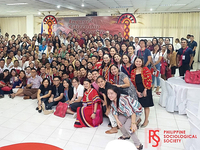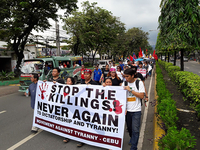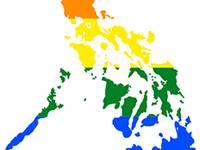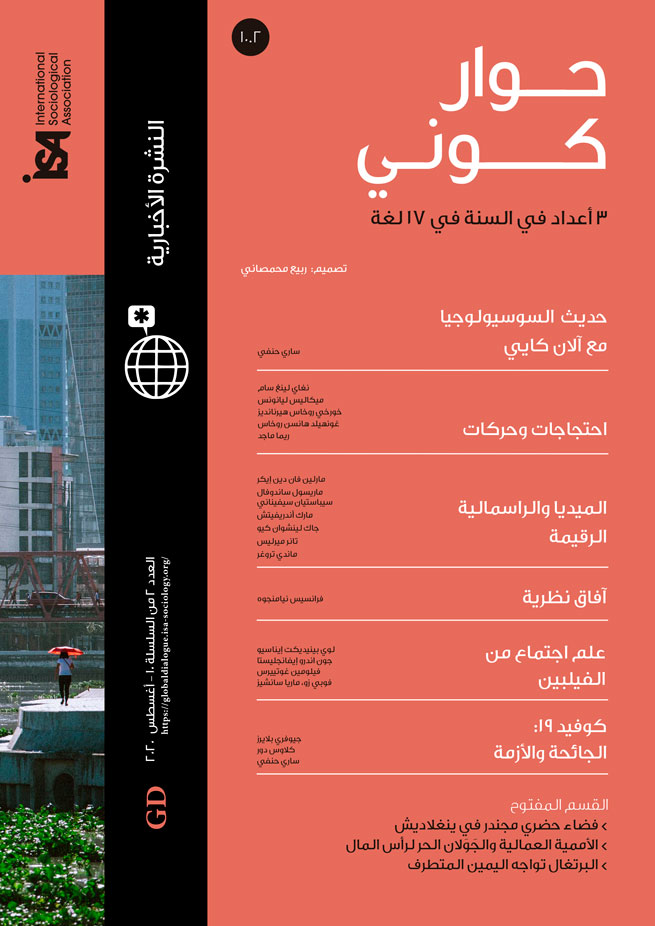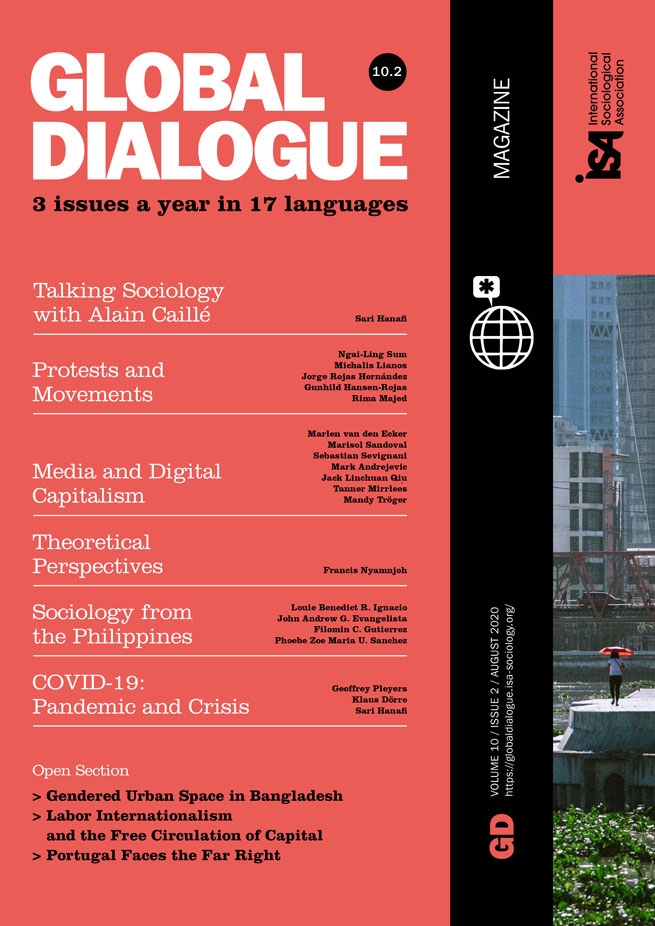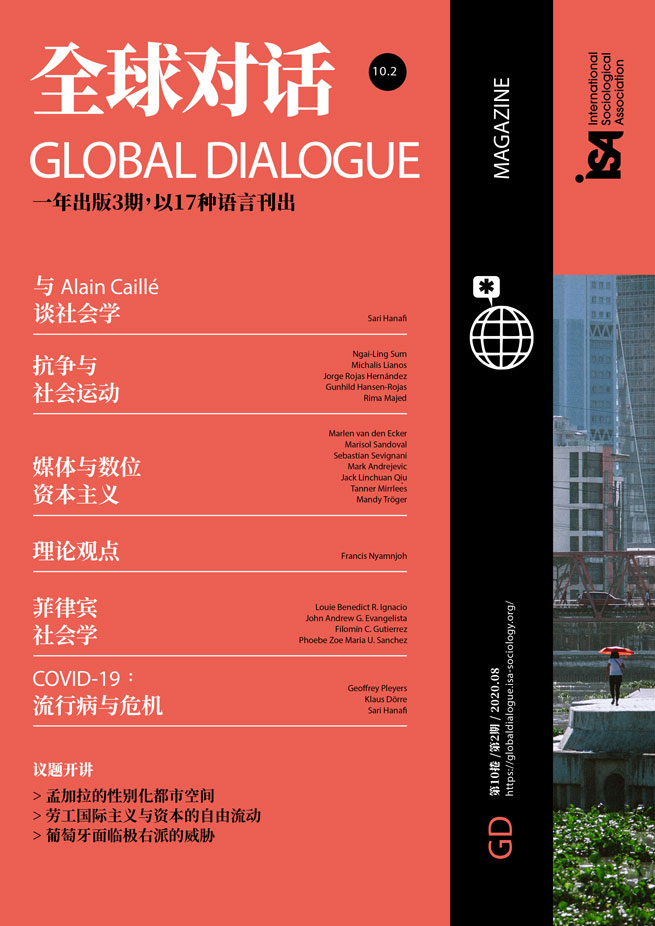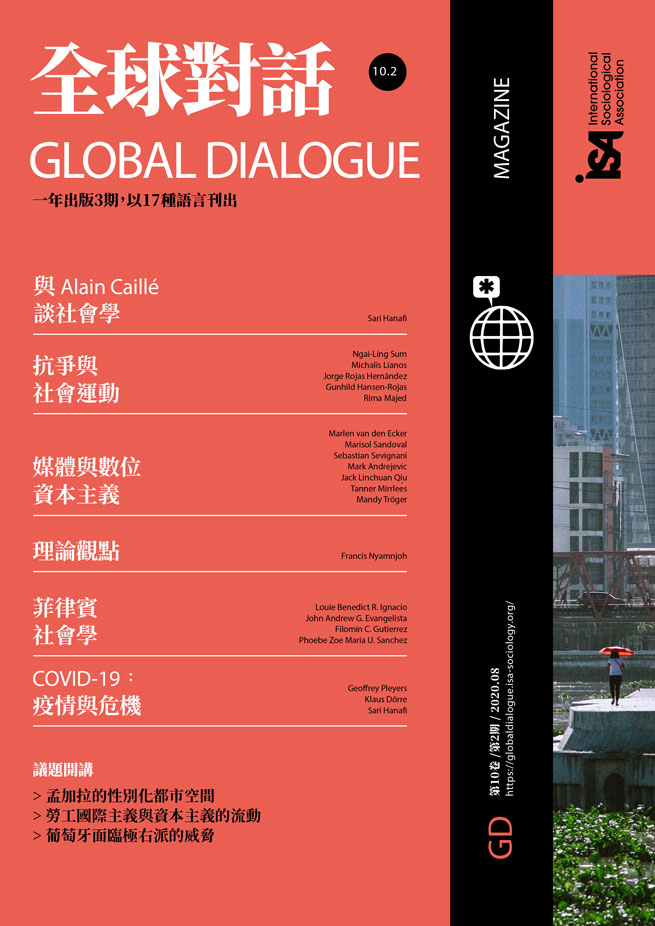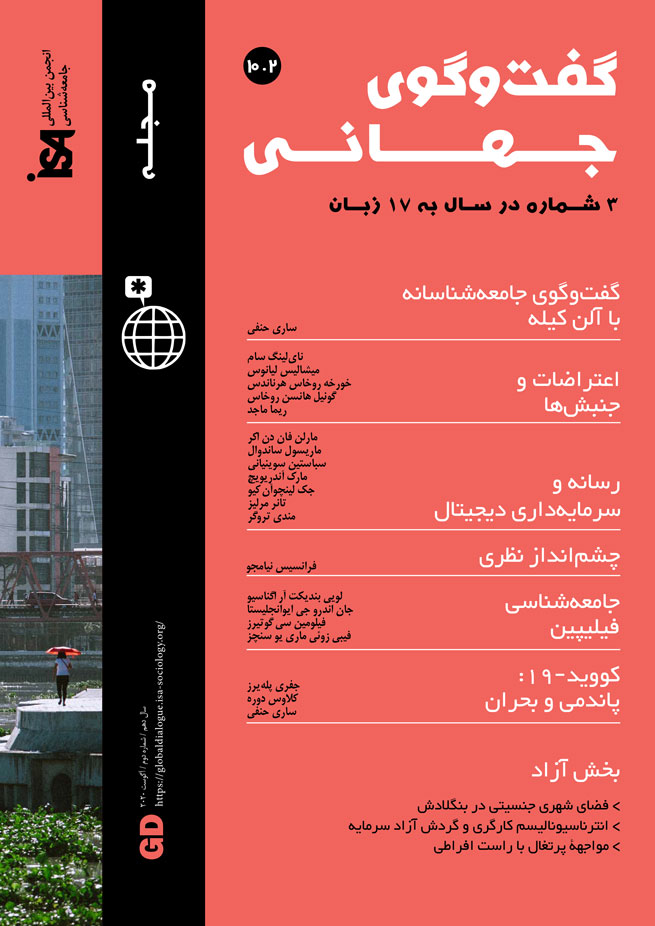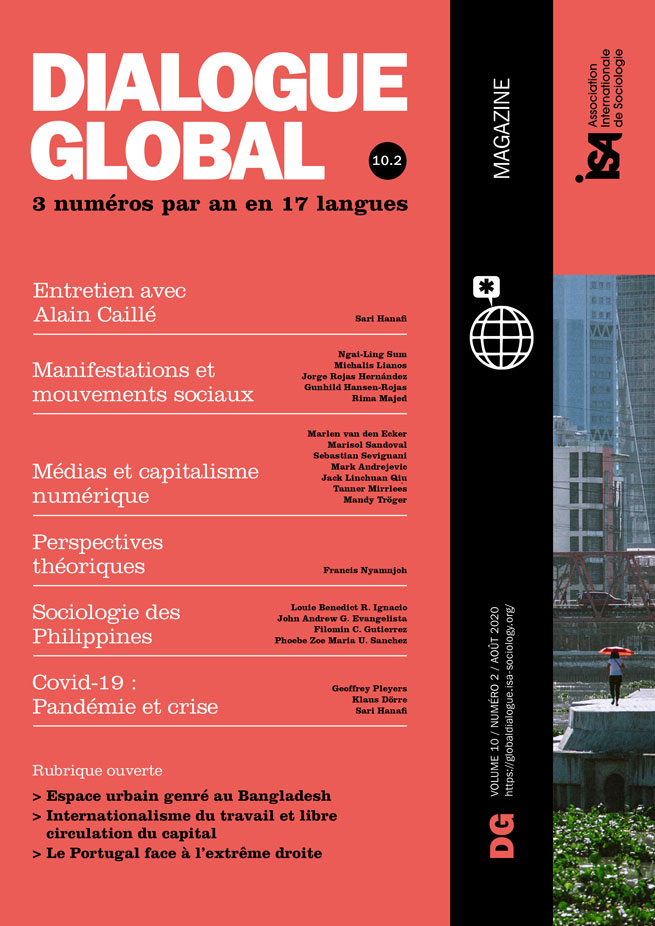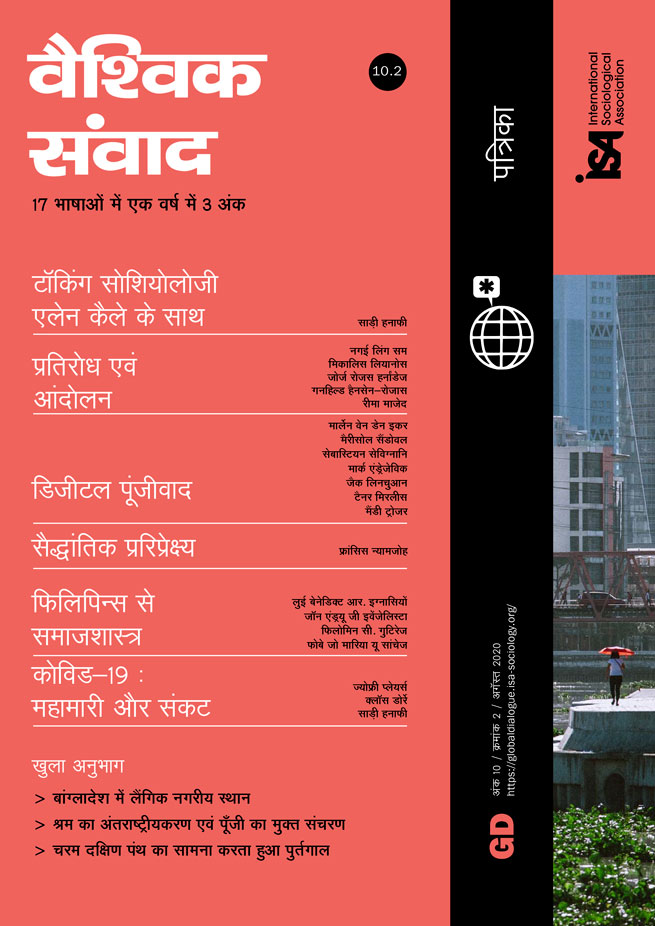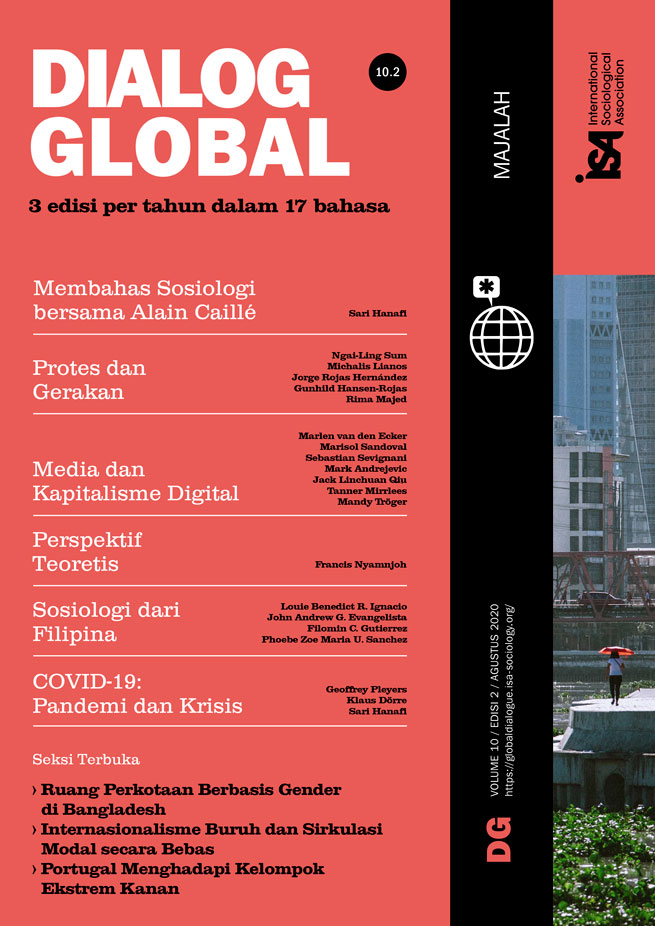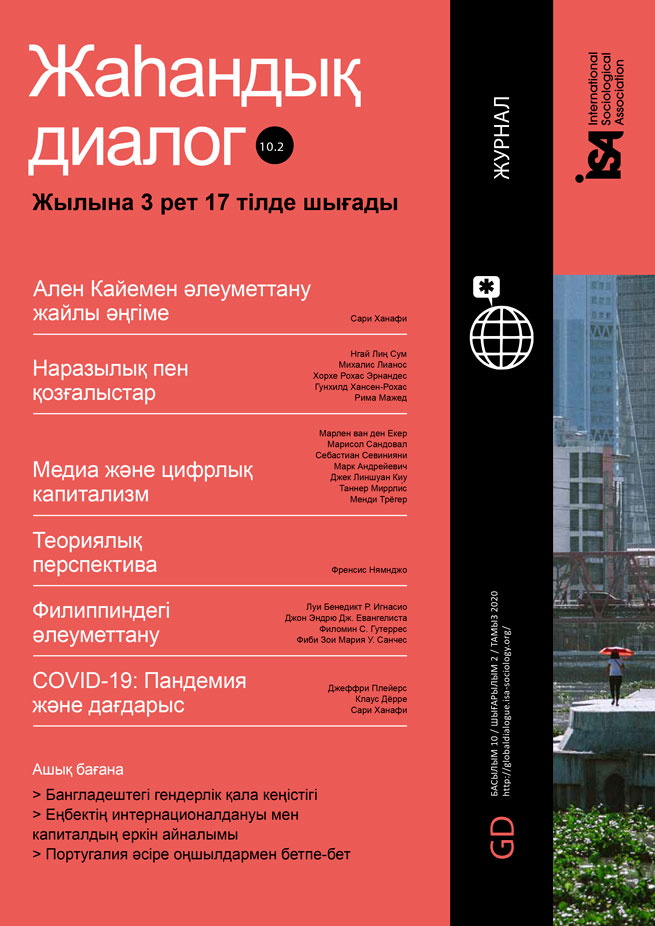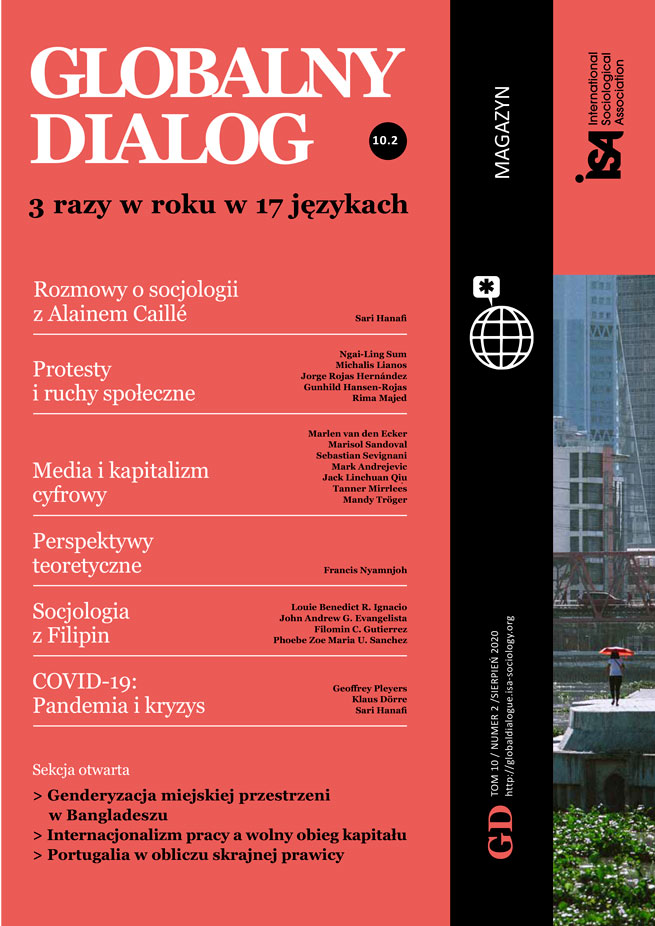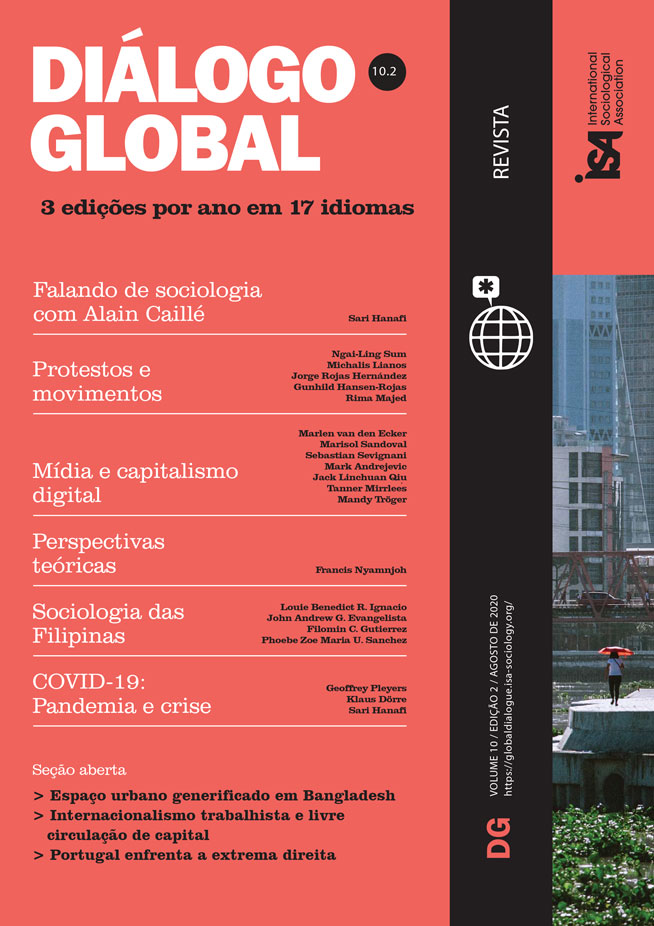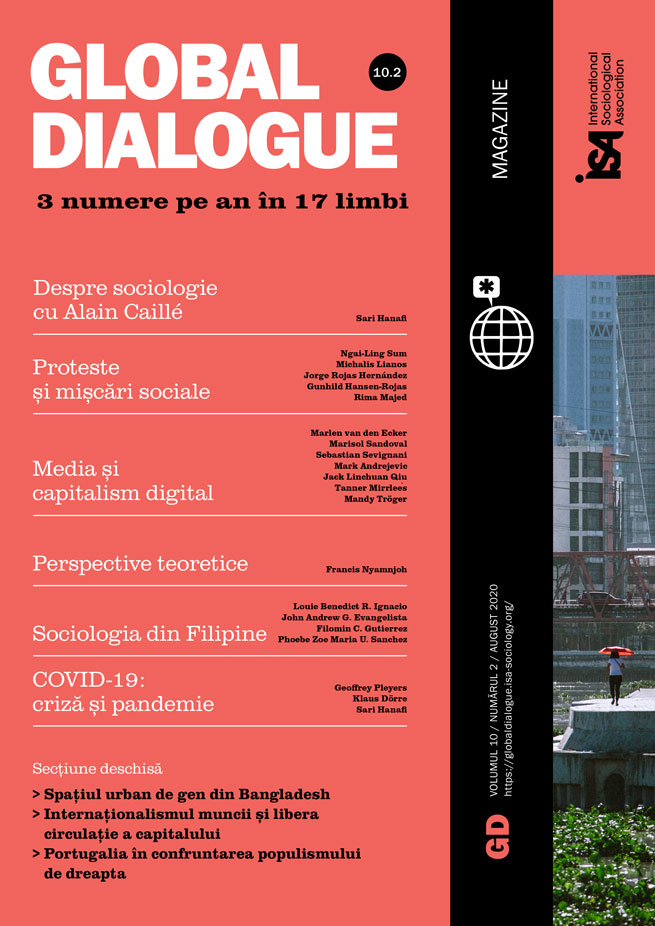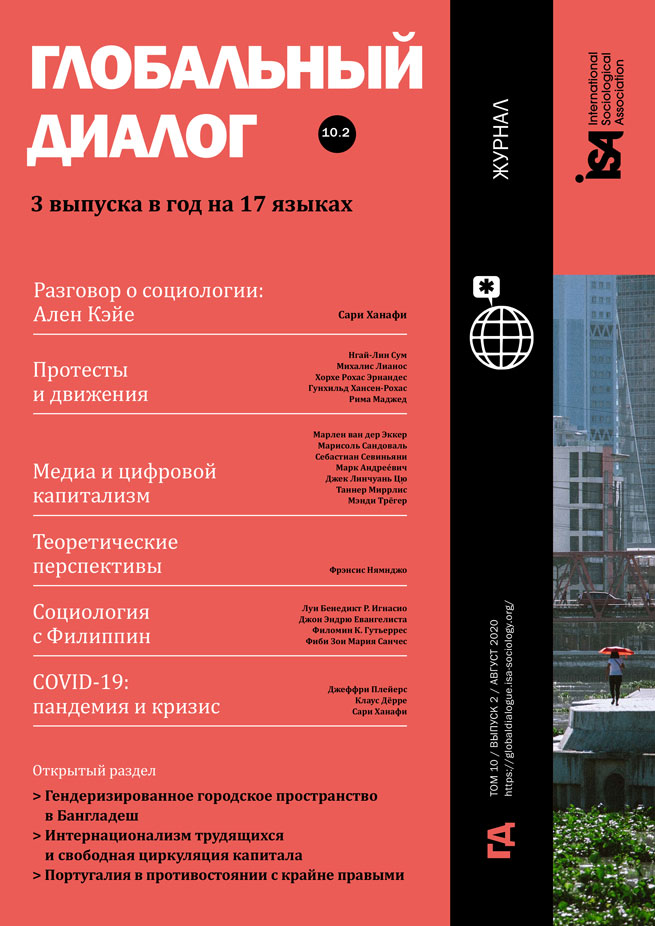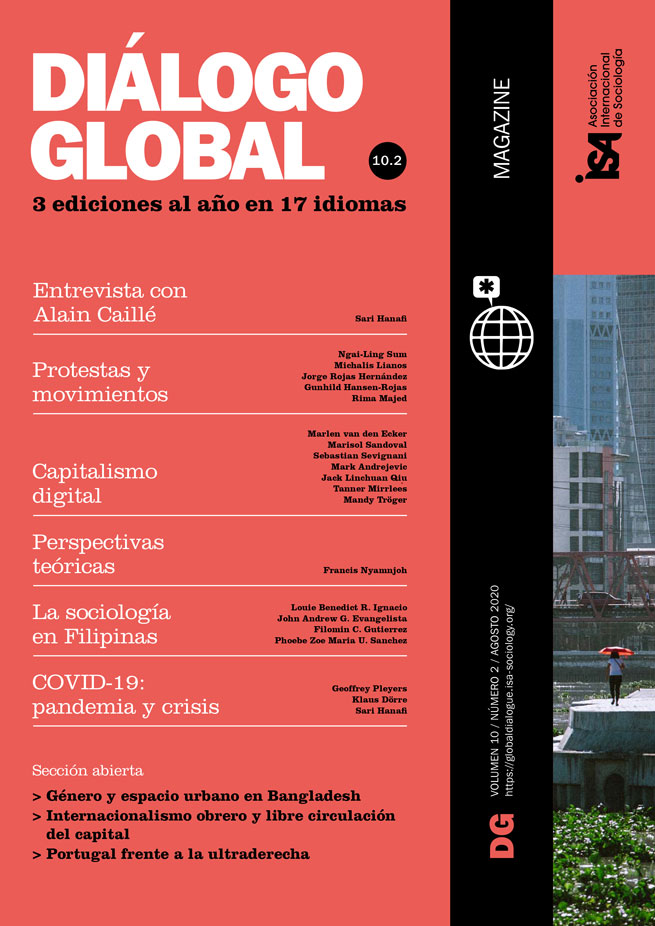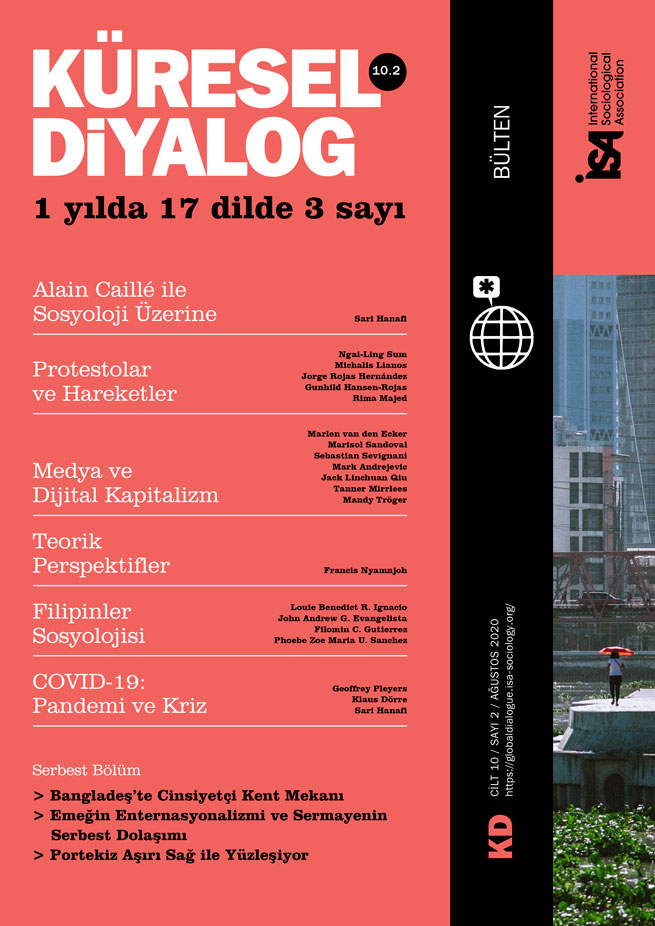This volume of Global Dialogue presents reflections of members of the Philippine Sociological Society (PSS) on various issues such as urbanization and governance, the LGBT movement, violence in the war on drugs, doing public sociology among the poor, and the marginalization of the Mindanao region. Coming from three distinct regions or groups of islands of the country, Luzon, Visayas, and Mindanao, they discuss their respective research interests and reflect on the challenges Filipino sociologists face today.
Louie Benedict Ignacio tackles the issues of urbanization in the Philippines by pointing to the dynamics of metropolitanization of Metro Manila, an urban sprawl of multiple cities that form the National Capital Region. The rise of gated communities evolved from providing economic security to ensuring physical security for its privileged residents as urban poverty increased and slums proliferated. Ignacio presents the crises of urbanization as attended not only by shared problems of resource and transport management, but also by social segmentation and issues of governance.
John Andrew Evangelista takes up how the queer lens makes sense of the ideological differences behind the groups in the LGBTQ movement in the Philippines. Diverse ideological logics presented various claims, which ranged from those advocating anti-discrimination laws and calls to transform the current economic system to those keen on the partying aspects of the Pride parade. He argues that the spaces of contradiction and conflict in constructing the history of the LGBTQ movement show that the differences in the sections of the movement are historical products rather than opposing interests.
Gutierrez presents the violence in the war on drugs, which killed thousands of “drug personalities” in the Philippines, as attended by dissonant narratives. The Filipino public’s support of the anti-drugs campaign contradicts complaints of human rights violation and narratives by arrested drug suspects of police violence, but confirms the latter’s own view of the campaign as a solution to the drug problem. As the topic opens to diverse narratives depending on one’s focus, social researchers must look beyond the debate between penal populism – an approach that advocates punitive measures against criminality based on public sentiments – and penal elitism – a view that privileges scientific or expert opinion on crime and regards public sentiments as simplistic.
The piece by Phoebe Zoe Maria Sanchez critiques the authoritarian populist regime of President Rodrigo Duterte as an extension of the failure of the People Power revolution in 1986 to achieve democratic transitions, and one which has only renewed, if not worsened, the fascistic features of the state displayed during the Marcos dictatorship. Sanchez argues that public sociology can gain from supporting organizations of the poor and unlocking their cultures of silence to strengthen their participation in civil society and impact state policy.
Finally, Mario Aguja writes about the marginalization of Mindanao in the Philippine South against the hegemony of Metro Manila in the North as the de facto center of economic, political, military, and cultural power. He problematizes this center-periphery relation to cover the practice of sociology itself. While issues from Mindanao, such as the Muslim-Christian conflict, extreme poverty rates, and violent extremism, are compelling topics for sociological analysis, Philippine sociology’s discourse was limited to topics that were of interest to the center. To reverse this bias, the PSS recently made a decisive pivot to Mindanao by bringing annual conferences to the region and placed Mindanaoan sociologists at the forefront of the national conversation.
Filomin C. Gutierrez, University of the Philippines, Philippines and member of ISA Research Committees on Sociology of Deviance (RC29), and Women, Gender and Society (RC32) <fcgutierrez@up.edu.ph>
